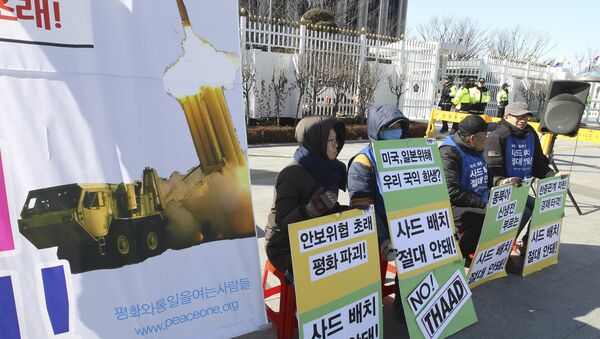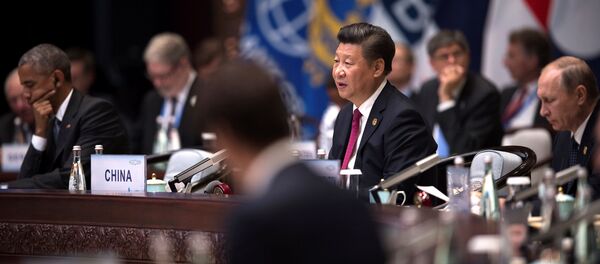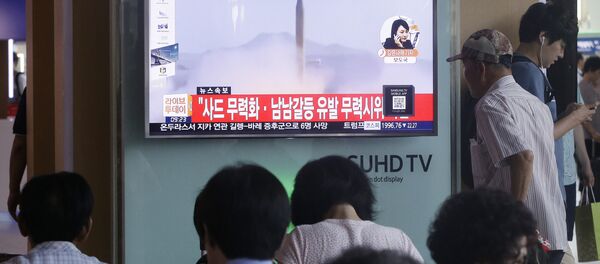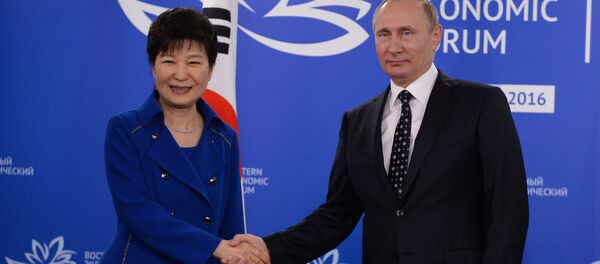Park, in turn, responded by pointing out that in 2016 alone, North Korea has carried out another nuclear test, together with a series of missile tests. Accordingly, she suggested, it is Pyongyang's military 'provocations' which have undermined stability in the region, and posed a challenge to relations between Seoul and Beijing.
The meeting between the two countries' leaders came against the background of tense relations between Beijing and Seoul, with China concerned over South Korea's agreement to deploy the American Terminal High Altitude Area Defense (THAAD) anti-ballistic missile system in the south of the country.
Hours after the meeting, North Korea conducted three more ballistic missile launches in the Sea of Japan.
Also on Saturday, President Xi met with US President Barack Obama. The two men discussed the North Korean issue. Xi reiterated the position that Beijing is fundamentally opposed to the deployment of THAAD in Korea, and urged Washington to respect China's strategic security interests.
The US made the decision to deploy its THAAD ABM system in South Korea in July.
Speaking to Sputnik, veteran military expert Vladimir Evseev laid out the contours of Beijing's concerns, and what China expects to gain by pressing Washington and Seoul not to deploy THAAD in South Korea.
"According to the information we have at the moment, the US will only be deploying one THAAD battery [in South Korea]," the expert noted. "This battery is meant to defend US military facilities, not Seoul. I think that this was discussed at the meetings Xi Jinping held with Park Geun-hye and Barack Obama."
"Secondly, it is possible that the US may deploy other systems in South Korea," Evseev noted. "That is, THAAD may be only the first element. Specifically, a ground-based version of the Aegis system, like the one in Romania, could be deployed [in South Korea]. In other words, China is now looking to stop the further deployment of US missile defense…and the deployment of American offensive weapons which will affect China's security interests. The idea is to prevent unfavorable developments from taking place, since this would force China to respond [in kind]. China is being drawn into an arms race, and considers it necessary to stop it."
For his part, commenting on Washington and Seoul's likely response to President Xi's warnings, Wang Junsheng, a research fellow at Beijing's National Institute of International Strategy at the Chinese Academy of Social Sciences, told Sputnik that it was very difficult to guess at the moment precisely how the US and South Korea would respond.
"It's very difficult to assess whether Seoul and Washington will continue to hold their horse at the edge of the abyss, or whether they will reverse their decision on the THAAD deployment," the analyst noted.
"During a key period of development of China-ROK relations, the senior leaders of the two countries are communicating directly…At the meeting, Xi Jinping stressed that China and South Korea are neighbors, and have broad common interests, including joint economic development and the promotion of regional peace…"
"In addition, there is an extensive set of arguments – both bitter and sweet ones, [that China can use] to persuade South Korea to take the right track – to reduce the negative factor, to respect [China's] core interests, to find common interests despite existing differences…Future development will depend on the political wisdom of South Korean leaders on this issue," Wang concluded.








